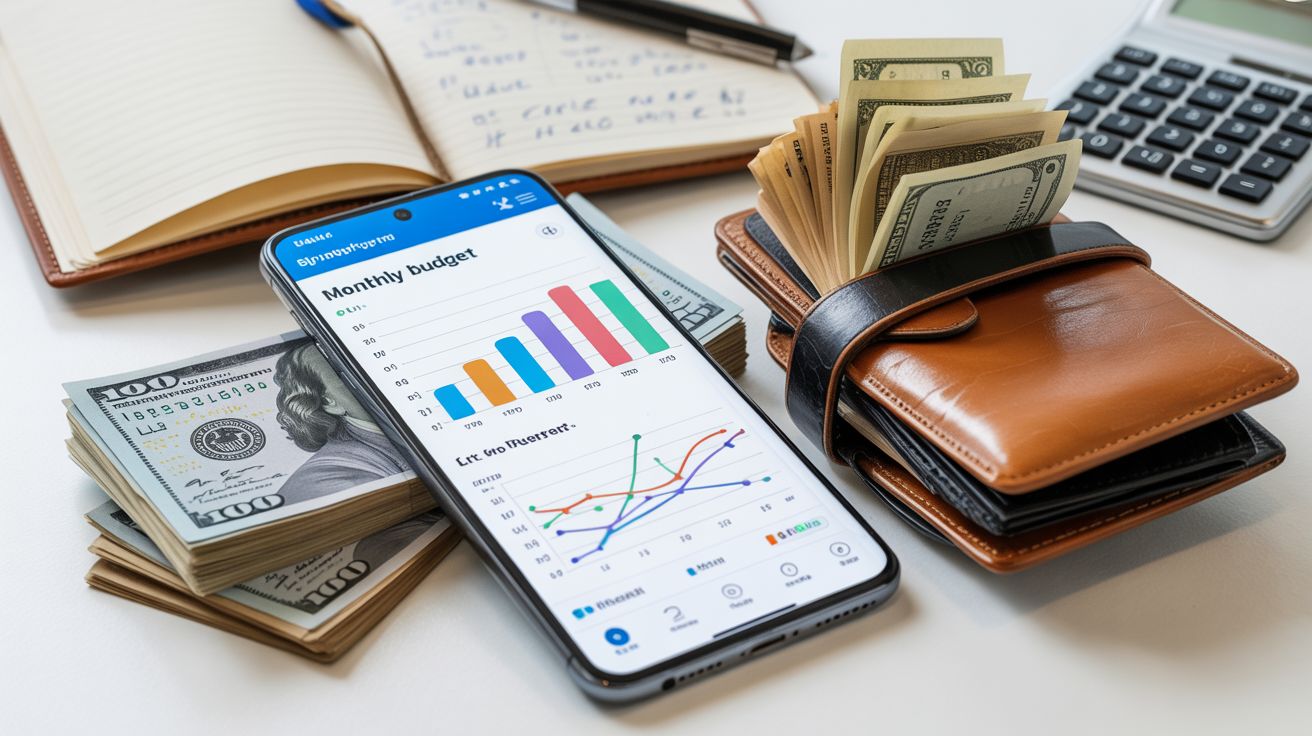
The Allure of the App: A False Sense of Security
Remember that feeling of downloading a shiny new budgeting app? The promise of effortless financial control, neatly categorized spending, and automated savings goals? We’ve all been there. You link your accounts, marvel at the colorful charts, and feel a surge of optimism. Finally, you think, you’re going to get your finance in order. You’ll conquer debt, build a robust investment portfolio, and finally start planning seriously for retirement. But how often does that initial enthusiasm translate into lasting change?
The truth is, for many, these apps become digital dust collectors. The initial excitement fades, the notifications become annoying, and the app slowly gets buried under a pile of other forgotten downloads. Why? Because budgeting, at its core, isn’t about fancy technology; it’s about behavior, awareness, and a deep understanding of your own financial habits. And that’s something an app simply can’t automate.
The Problem with Automation: A Disconnect from Reality
One of the biggest selling points of budgeting apps is their ability to automate expense tracking. They categorize your transactions, identify spending patterns, and even suggest ways to save. Sounds great, right? But this automation can actually create a disconnect from your money. When you’re not actively involved in tracking your spending, you’re less likely to be mindful of where your money is going. It’s like letting a robot drive your car – you might get to your destination, but you won’t be paying attention to the road.
Consider this: you swipe your credit card for a coffee. The app automatically categorizes it as “Coffee Shops.” Done. But did you really think about that $5 coffee? Did you consider making coffee at home? Did you even notice the charge amidst the dozens of other automated transactions? The app did its job, but you didn’t learn anything. This passive approach hinders the development of crucial financial awareness.
The Illusion of Control: Data Without Understanding
Budgeting apps provide you with a wealth of data: charts, graphs, spending reports, and net worth calculations. But data without understanding is just noise. You might see that you spent $300 on dining out last month, but do you understand why? Was it a series of impulsive takeout orders? Or a few celebratory dinners with friends? Without digging deeper and analyzing the underlying reasons behind your spending, the data is meaningless.
Many apps offer generic advice, like “reduce your dining out expenses.” But that’s not helpful if you don’t understand the context. Maybe those dinners were important for networking and career advancement. Maybe you were stressed and used takeout as a coping mechanism. The app can’t provide that level of insight. True financial control comes from understanding your motivations and making conscious choices, not just blindly following generic recommendations.
The “Set It and Forget It” Trap: Neglecting Active Management
Budgeting apps often promote a “set it and forget it” approach. You set your budget, link your accounts, and let the app do its thing. But personal finance is not a static process. Your income, expenses, and financial goals change over time. A budget that worked last year might not be suitable for this year. Life throws curveballs: unexpected medical bills, job changes, or even just a shift in priorities.
Relying solely on an app can lead to complacency. You might assume that everything is under control, only to discover later that you’ve drifted off course. Active management is crucial. You need to regularly review your budget, track your progress, and make adjustments as needed. This requires a hands-on approach that goes beyond simply glancing at an app’s dashboard.
The Old-School Solution: The Power of Pen and Paper (or Spreadsheet)
Now, let’s talk about the “old-school” method: budgeting with pen and paper, or a simple spreadsheet. It might seem archaic in the age of smartphones and AI, but this method offers several advantages that apps simply can’t replicate. First and foremost, it forces you to be actively involved in the process. You have to manually track your income and expenses, which makes you more aware of where your money is going. There’s no hiding behind automated categorizations.
Secondly, it encourages you to think critically about your spending. When you’re writing down every transaction, you’re more likely to ask yourself, “Do I really need this?” This mindful approach can lead to significant changes in your spending habits. Finally, it allows for greater flexibility and customization. You can tailor your budget to your specific needs and goals, without being constrained by the limitations of an app’s pre-defined categories.
The Active Approach: Building Financial Awareness
The key to successful budgeting, regardless of the method you choose, is active participation. This means more than just tracking your expenses; it means understanding your motivations, identifying your financial goals, and making conscious choices about how you spend your money. Start by creating a detailed budget that reflects your income, expenses, and savings goals. Be realistic and honest with yourself. Don’t underestimate your spending or overestimate your income.
Then, track your expenses diligently. Whether you use pen and paper, a spreadsheet, or even a budgeting app, make sure you’re actively involved in the process. Review your budget regularly and make adjustments as needed. Identify areas where you can cut back on spending and redirect those funds towards your financial goals, such as paying off debt, building an emergency fund, or investing for retirement. Remember, budgeting is not about deprivation; it’s about making informed choices that align with your values and priorities. Think about your long-term finance goals, like buying a house or securing your children’s education.
Beyond Budgeting: Planning for the Future
Budgeting is just one piece of the financial puzzle. To truly achieve financial security, you need to think beyond your monthly expenses and start planning for the future. This includes setting long-term financial goals, such as saving for retirement, investing in the stock market, and purchasing insurance to protect yourself and your family. Consider consulting with a financial advisor to develop a comprehensive financial plan that addresses your specific needs and goals. They can help you navigate the complexities of investment, insurance, and retirement planning.
Don’t underestimate the importance of insurance. Adequate insurance coverage can protect you from financial ruin in the event of an unexpected illness, accident, or natural disaster. Review your insurance policies regularly to ensure that you have adequate coverage. And remember, investing is a long-term game. Don’t try to time the market or chase after quick profits. Instead, focus on building a diversified portfolio of investments that aligns with your risk tolerance and time horizon. A well-diversified investment portfolio can help you grow your wealth over time and achieve your financial goals.
Embrace the Process: A Lifelong Journey
Budgeting is not a one-time fix; it’s a lifelong journey. It requires discipline, patience, and a willingness to adapt to changing circumstances. There will be times when you slip up and overspend. Don’t beat yourself up about it. Just learn from your mistakes and get back on track. The key is to stay committed to the process and to continuously strive to improve your financial habits. Remember, every small step you take towards financial awareness and control will make a difference in the long run.
So, ditch the false promises of effortless budgeting and embrace the power of active participation. Whether you choose pen and paper, a spreadsheet, or a budgeting app, make sure you’re actively involved in the process. Understand your motivations, track your progress, and make conscious choices about how you spend your money. Your financial future depends on it. Take control of your finance today, and start building the life you deserve.


